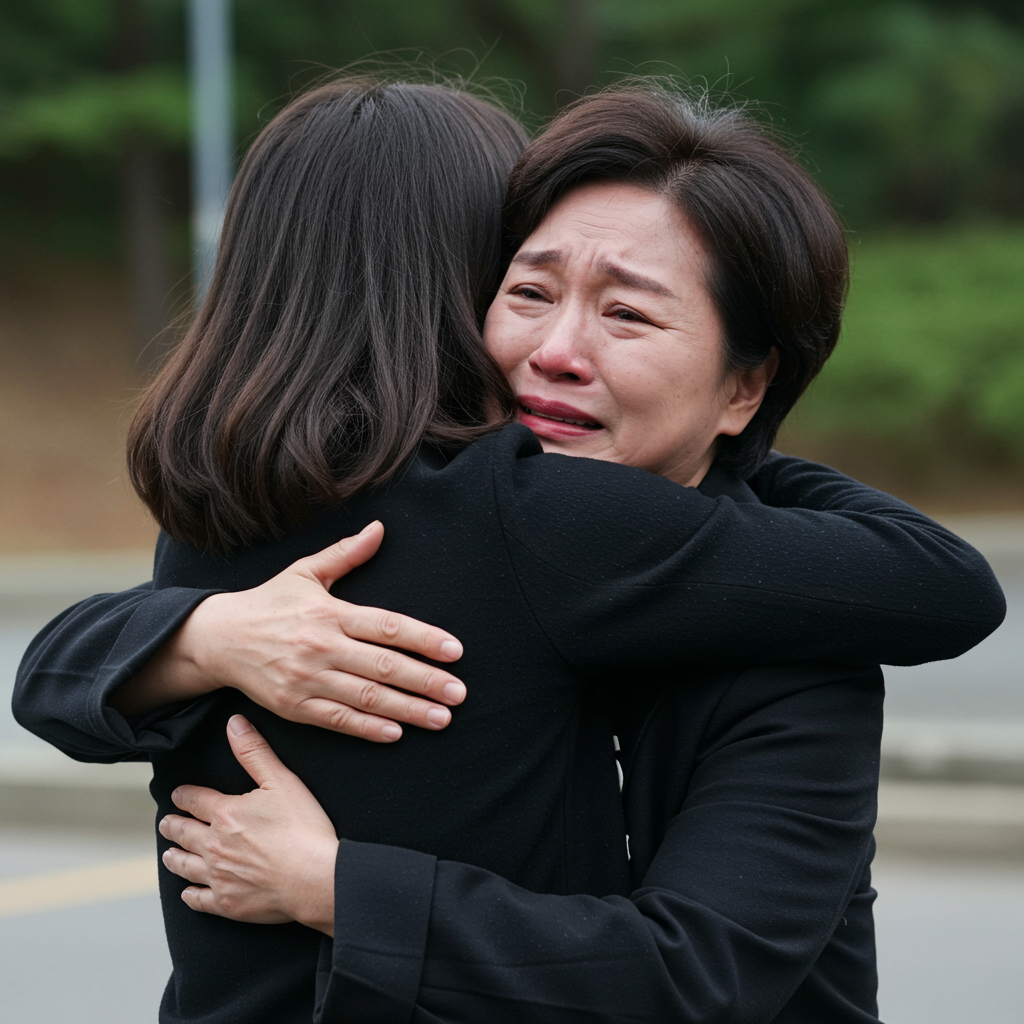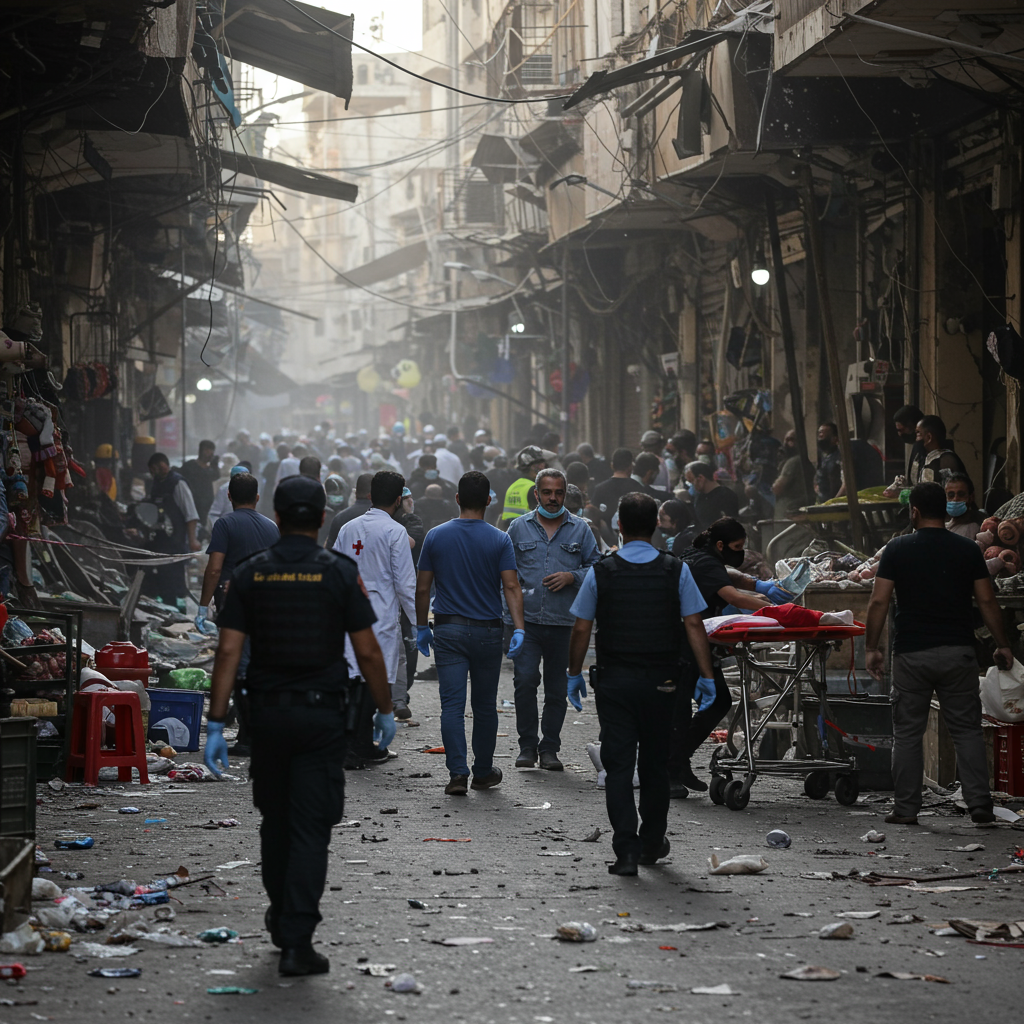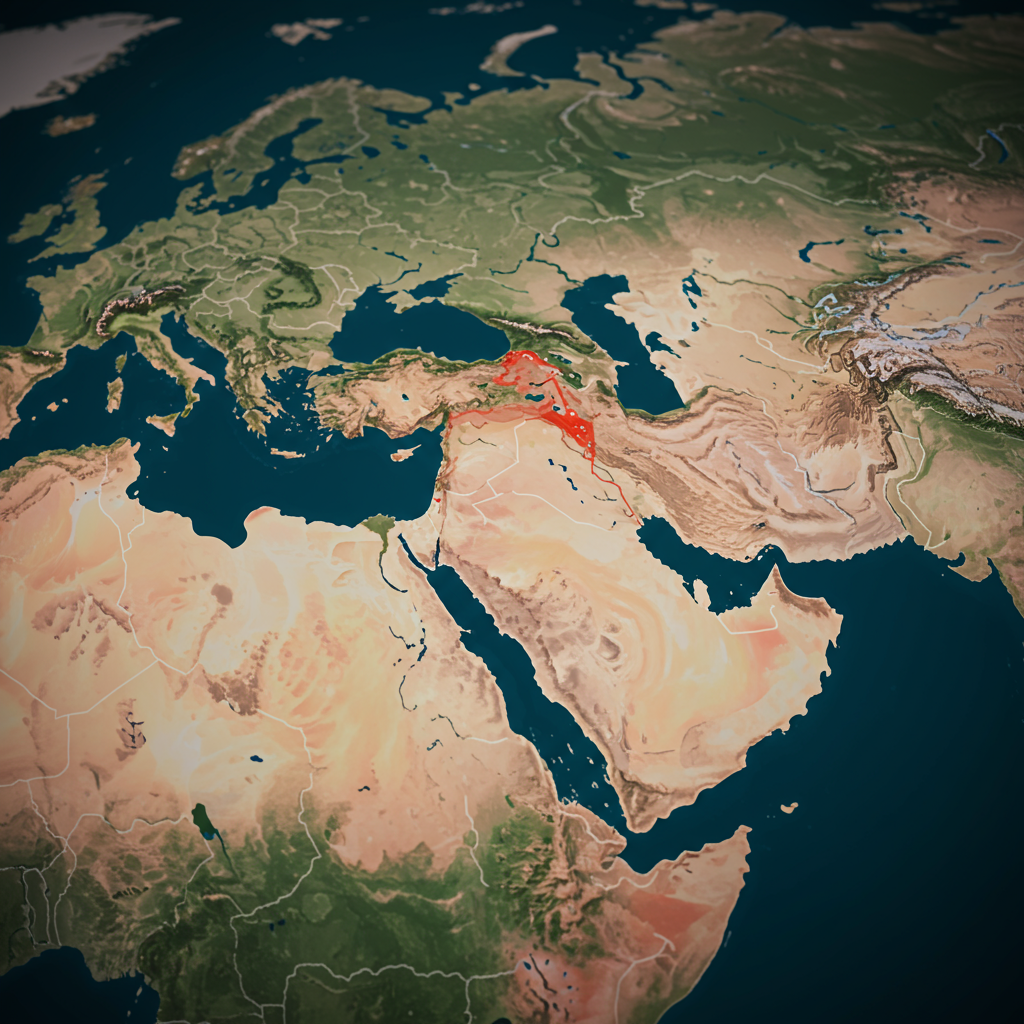The last memory Han Tae-soon has of her daughter, Kyung-ha, is from a day in May 1975 at their home in Seoul. Han was heading to the market and invited six-year-old Kyung-ha to join her, but the child wanted to play with friends. When Han returned, Kyung-ha was gone. That brief moment marked the beginning of a 44-year separation and an agonizing search that would consume Han’s life.
When they finally reunited over four decades later, Kyung-ha was an adult American woman named Laurie Bender, almost unrecognizable to her birth mother. Their tearful meeting in 2019 revealed a tragic story that sheds light on the dark history of South Korea’s overseas adoption program.
Decades of Searching and a Breakthrough Reunion
Han Tae-soon, now 71, describes the 44 years spent searching for her daughter as having “ruined my body and mind.” She and her husband tirelessly pursued every lead: visiting police stations and orphanages, putting up countless flyers, and making emotional appeals on television. Han recalls pounding the streets until “all 10 of my toenails fell out.” The search was physically and emotionally devastating, punctuated by false hopes, including one instance where a woman she believed to be Kyung-ha lived with her family before confessing the truth.
The breakthrough finally came in 2019 when Han registered with 325 Kamra, a group dedicated to connecting overseas Korean adoptees with their birth families through DNA matching. A match was found with Laurie Bender, a nurse living in California. After several phone calls across continents, Laurie flew to Seoul. The reunion at the airport was profoundly emotional. As they embraced, Han, a hairdresser for 30 years, ran her fingers through Kyung-ha’s hair, needing that physical confirmation after years of mistaken identities.
Han’s first words to the daughter she had lost were, “I’m so sorry.” She explained, “I felt guilty because she couldn’t find her way home when she was a child. I kept thinking about how much she must have searched for her mother.” For Kyung-ha, the reunion was healing. She described it earlier to the Associated Press as like a “hole in your heart has been healed, you finally feel like a complete person.”
Unraveling the Past: Allegations of Kidnapping and False Identities
Together, mother and daughter pieced together the events of that fateful day in 1975. Six-year-old Kyung-ha was approached by a strange woman near her home who claimed to know her mother and falsely told her Han no longer wanted her. The woman took Kyung-ha to a train station, then abandoned her at the final stop. Found by police, Kyung-ha was placed in an orphanage. From there, she was sent to the US and adopted by a family in Virginia.
Years later, checks revealed that the papers used for Kyung-ha’s adoption were false, stating she was an abandoned orphan with unknown parents. Discovering this led Kyung-ha to feel as though she had been “living a fake life,” with everything she knew about her origins being untrue.
Kyung-ha’s case, while deeply personal, is far from unique. It highlights systemic issues within South Korea’s overseas adoption program, now facing widespread allegations of fraud, illegal adoptions, and human trafficking.
South Korea’s Controversial Overseas Adoption Program
South Korea has sent more children abroad for adoption, over a longer period, than any other country, with estimates ranging from 170,000 to 200,000 children predominantly adopted in the West since the 1950s. The program began in the aftermath of the 1950-53 Korean War, when the nation was impoverished and faced the challenge of caring for an estimated 100,000 orphaned and displaced children at a time when domestic adoption was uncommon. Initially framed as a humanitarian effort, the program was managed by private adoption agencies. Over time, these agencies gained significant autonomy, coinciding with rising demand from Western countries experiencing declining birth rates. Overseas adoptions surged in the 1970s and peaked in the 1980s, with over 8,800 children sent abroad in 1985 alone.
Critics from that era expressed alarm, with one observer in a 1976 BBC documentary describing the situation as “out of control,” almost like a “trade in children” flowing from Asia to Europe and North America. Photos from the time depicted planes filled with Korean children, including swaddled babies treated “like cargo,” with allegations of inadequate care during transit.
State Oversight Failures and Agency Practices
A landmark inquiry by South Korea’s truth and reconciliation commission found in March that successive governments had committed human rights violations through severe lack of oversight, allowing private agencies to operate a “mass export” system for profit. The report alleges foreign agencies set quotas for children, which Korean agencies willingly fulfilled for considerable profit, charging high fees and demanding hidden “donations.”
The inquiry detailed unscrupulous methods used to acquire children. Beyond alleged kidnappings like Kyung-ha’s case, thousands of homeless or unattended children were reportedly rounded up and placed in welfare centers during national “clean up the streets” campaigns in the 1970s and 80s. Some parents were allegedly told their babies had died, only for the children to be taken by adoption agencies. Agencies also reportedly failed to obtain proper consent from birth mothers.
Furthermore, the report highlights how adoption agencies deliberately falsified information in adoption records to meet demand quickly and cut corners. Lost children without identification were often documented as abandoned orphans. In shocking instances, if a child intended for adoption died or was reclaimed by their birth parents, another child might be swapped in and assigned the original child’s identity to avoid refunds and expedite the process.
The Enduring Impact: Falsified Records and Difficulty Reconnecting
These widespread falsifications have created immense difficulties for countless overseas adoptees attempting to trace their biological families and origins. Many find wrong or missing information in their records, while others discover their identities were entirely fabricated. As Han Boon-young, co-founder of an adoptee rights group, stated, adoptees feel like “victims of state violence,” and the lack of accurate documents causes them to be victimized a second time. She emphasizes that this is a human rights issue involving kidnapping, falsified documents, and violations committed during inter-country adoption, calling for recognition and accountability.
Responsibility for these systemic failures is seen as shared between the private agencies and the state. Experts argue that agencies exploited the system while the government “turned a blind eye,” allowing illegal practices to flourish. Some scholars describe the government as the “captain” and the agencies as the “oars,” a structure that enabled both sides to deflect blame. Evidence suggests the state was not merely passive; it actively shaped policy, set annual quotas, and even, according to an Associated Press investigation, rewrote laws to remove safeguards and judicial oversight, aligning them with foreign laws (like in the US) to speed up adoptions. Government documents from the 1980s explicitly listed policy goals that included “promotion of future national strength and people-to-people diplomacy” alongside child welfare, suggesting diplomatic motives for the program’s scale.
Seeking Justice and Reforms
In response to the growing number of allegations and the truth and reconciliation commission’s findings, individuals like Han Tae-soon are seeking accountability. Ms. Han is suing the South Korean government for failing to prevent her daughter’s illegal adoption, making her the first biological parent to seek damages in such a case. Hers is one of two landmark lawsuits against the government, following a suit filed by an adoptee in 2019.
The BBC contacted Bu Chung-ha, a former chairman of Holt International, one of the largest adoption agencies facing allegations. He denied sending children wrongly identified as orphans abroad during his tenure, claiming that parents alleging kidnapping had “abandoned them.”
The South Korean government has expressed deep sympathy for the emotional pain of affected individuals and families, stating it is taking steps to strengthen state responsibility and promote adoptions compliant with international standards. Reforms were enacted in 2012 to tighten screening and improve tracking of birth parent data. Further changes are set to take effect in July, shifting the handling of all adoptions to the government instead of private agencies and aiming to minimize overseas placements. Overseas adoptions have significantly declined, with only 79 recorded in 2023.
The Lingering Pain
Despite these steps and growing awareness, the trauma persists for adoptees and birth parents. Even after their emotional reunion, Han Tae-soon and Kyung-ha have struggled to maintain a close connection, facing challenges like distance and language barriers. Kyung-ha has forgotten most of her Korean, while Han knows little English. Though they text occasionally, Han practices English daily in an exercise book, determined to bridge the gap.
Yet, for Han, simply knowing where her daughter is isn’t enough if they cannot truly communicate. The decades of searching, the pain of loss, and the difficulty of fully reconnecting weigh heavily on her. “My entire life has been ruined,” she states, feeling that no amount of money could ever compensate for what was stolen from her. As South Korea begins to confront this painful chapter, the demand for justice, recognition, and reconciliation from the victims of its past policies remains.
References
- https://www.bbc.com/news/articles/c0mr9ppn33po
- https://www.bbc.co.uk/news/articles/c0mr9ppn33po
- https://au.news.yahoo.com/she-found-her-daughter-44-221738419.html
- https://www.coveyclub.com/blog_posts/daughter-hates-caring-aging-mother/
- https://www.theguardian.com/lifeandstyle/2022/sep/03/13-year-old-daughter-dead-in-five-weeks-hospital-mistakes




